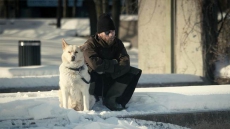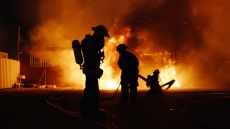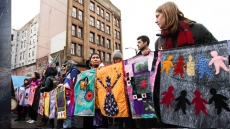VANCOUVER — When a close family friend died last August, Satwinder Bains got a call asking her to help give the dead woman a bath.
"It was such an honour, such a privilege to be able to do it," said Bains, a professor of Sikh studies at the University of the Fraser Valley in Abbotsford, B.C.
The Sikh tradition of joining others to pray for a deceased loved one and bathing the person entering "a new journey" is a sacred rite and has nothing to do with religion, she said.
"At the time of death, both prayer and person will be by your side," said Bains of the simple ritual that is similar to practices in other cultures and involves dressing the deceased and combing his or her hair before cremation.
Bains said the tradition is highly personal and she finds it tough to consider it as part of a so-called death midwifery service.
"I think to take away that privilege and give it to a death midwife or whatever is so difficult to get around."
The College of Midwives of British Columbia is also challenging use of the word midwifery because it's regulated as part of a profession with certain education and training standards, regulations and a complaints process.
Registrar Louise Aerts said the college has issued a cease and desist letter to the Canadian Integrative Network for Death Education and Alternatives for using the title midwife for people who are not registered with the college and to remove it from its website and any advertising.
Aerts said midwifery is regulated in 10 provinces and territories, with Newfoundland and Labrador and New Brunswick in the process of regulating it and the Yukon involved in preliminary discussions to do the same.
"The reason that it's a protected title is that the colleges have the legislated mandate to protect the public," she said.
"We do have an expectation from the Ministry of Heath that we will take action on this type of thing."

The website for the Canadian Integrative Network for Death Education and Alternatives says a death midwife offers support such as bathing the "death journeyer" and guidance to families regardless of whether they use a funeral home. It also compares the role of a birth midwife to a death midwife.
A spokesperson for the network could not be reached for comment.
Aerts said those who call themselves death midwives could instead go with the term death doulas.
"Personally, I think the terminology doula is clear. It makes more sense. I understand the parallels to midwifery and why they're using it, but doula connotes that supportive role and it's not a restricted title."
Sarah Kerr, a death midwife in Calgary, said the College of Midwives of Alberta has not contacted her about using the term.
However, Sheila Harvey, registrar of the College of Midwives of Alberta, said the college does not support anyone's use of the title midwife without specific training for the job but that the college is not yet an independent body under the Health Professions Act so it can't take action against people who use the title.
Kerr said she opted to call herself a death midwife instead of a death doula when she started her business three years ago because "the sound of it appealed to me more."
"I'm not so concerned about titles," she said. "I'm more concerned that families have options. This is a whole new field and right now it's calling itself death midwifery and it's a lay person's movement of people stepping forward and offering different services and support to dying people and their families.
"We're all on the same team, birth midwives and death midwives. Birth midwives fought very hard decades ago and even more recently to make options available for families. And death midwives are doing the same thing."
Kerr said she provides a variety of services depending on a family's wishes, such as facilitating a storytelling circle about the dying person or a "living funeral" where people gather to say goodbye.


